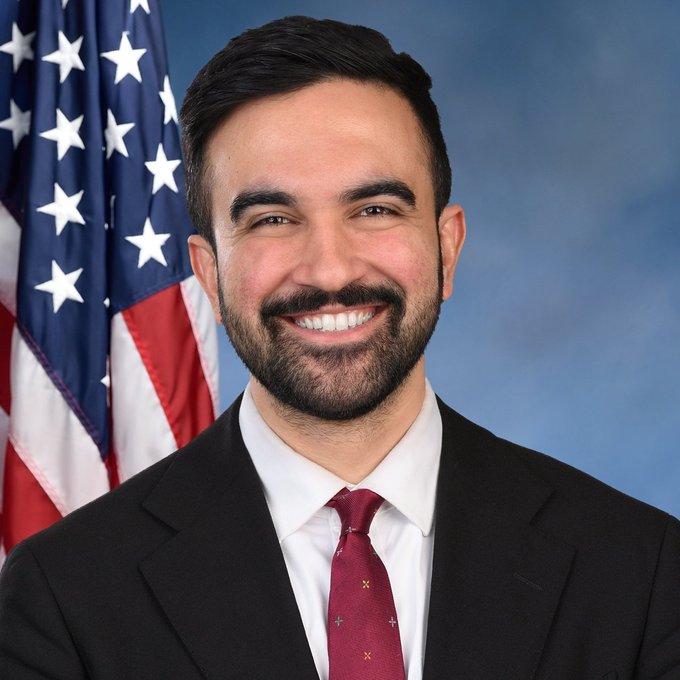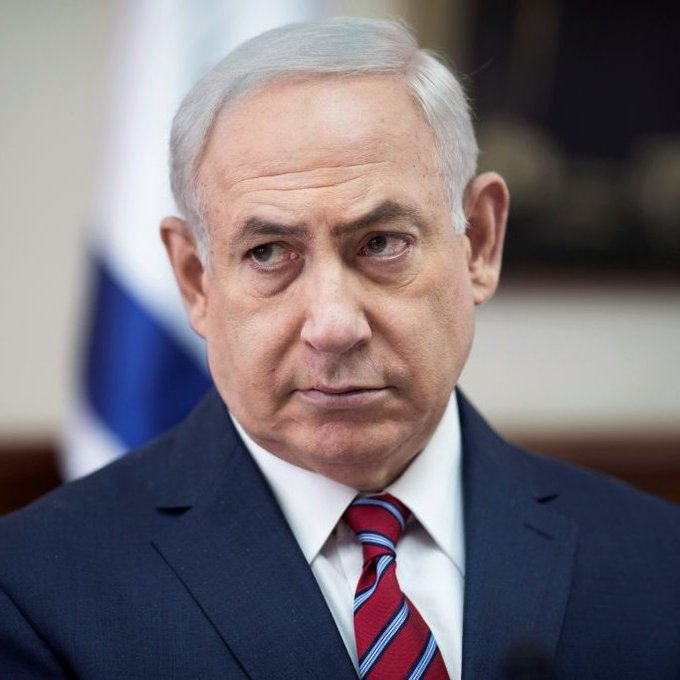Israeli PM Netanyahu shrugs off New York arrest call by Zohran Mamdani, saying he’ll arrive with Donald Trump. Tensions flare over Gaza war protests.
Israeli Prime Minister Benjamin Netanyahu has responded defiantly to a recent call for his arrest by New York Assembly Member Zohran Mamdani, brushing off the threat with a sharp quip: “I’m going to come there with President Trump, and we’ll see.”
The comment, delivered with characteristic confidence, was in reference to Mamdani’s public remarks suggesting that Netanyahu should be arrested if he visits New York, particularly in light of growing accusations of war crimes during the ongoing Gaza conflict. As tensions between Israel and progressive voices in the U.S. continue to rise, Netanyahu’s response has sparked both outrage and applause — depending on which side of the political spectrum one falls.
While Mamdani’s call isn’t legally binding, it reflects a larger shift in tone from sections of American politics, where criticism of Israeli military actions has grown louder and more explicit — especially among younger, left-leaning politicians.
The Arrest Demand: A Progressive Flashpoint
Zohran Mamdani, a New York State Assembly member affiliated with the Democratic Socialists of America, has been an outspoken critic of Israel’s military campaign in Gaza. In multiple public appearances and on social media, Mamdani has called the Netanyahu-led government a “regime committing ethnic cleansing” and has urged U.S. authorities to treat Israeli officials “as war criminals, not honored guests.”
His latest comments suggesting Netanyahu should be arrested if he sets foot in New York mark a sharp escalation. They mirror the sentiment of global pro-Palestinian activists and some legal scholars who argue that Israel’s conduct during the war — particularly civilian deaths and attacks on infrastructure — may qualify as violations of international humanitarian law.
However, Mamdani’s remarks, though symbolically powerful, have no legal weight under U.S. law. There is currently no arrest warrant issued for Netanyahu from any international tribunal or U.S. jurisdiction.
Still, Mamdani’s statement reflects the growing polarization in American politics regarding Israel — a divide that Netanyahu seems to be deliberately playing into.
Netanyahu’s Response: Political Theater Meets Realpolitik
When asked about the possibility of being arrested in New York, Netanyahu smiled and replied, “I’m going to come there with President Trump, and we’ll see.”
The response served several purposes. It was a jab at his critics, a signal of loyalty to Trump — one of his staunchest international allies — and a not-so-subtle reminder of the political alliances that still favor him in the U.S.
The reference to Trump is especially notable. Netanyahu and Trump have maintained a close relationship since the former U.S. president’s time in office, during which the U.S. moved its embassy to Jerusalem, recognized Israeli sovereignty over the Golan Heights, and cut funding to Palestinian aid groups. For Netanyahu, Trump represents a powerful ally capable of shielding him from international pressure and progressive outrage.
The implication is clear: any attempt to “arrest” Netanyahu on U.S. soil would have to go through Trump first — assuming he returns to office.
Can Netanyahu Actually Be Arrested in the U.S.?
Legally speaking, the answer is no — or at least, not easily.
As a sitting head of state, Netanyahu enjoys diplomatic immunity under international law. Even if he were to step down from office, any arrest would require an actual indictment by an international tribunal like the International Criminal Court (ICC), which the U.S. does not recognize or participate in.
More importantly, the U.S. has a long-standing tradition of protecting its allies, especially Israel. Even under more progressive administrations, the idea of arresting a foreign leader without international consensus is nearly impossible.
So Mamdani’s call is more political theater than legal reality. But it taps into a very real frustration among activists and some lawmakers — the sense that justice, when it comes to global powers like Israel, is selectively enforced.
The Trump Factor: Defiance Meets Strategy
By invoking Trump in his response, Netanyahu is doing more than trolling progressives — he’s strategically reminding both the U.S. and Israeli public that he still holds powerful cards.
Trump remains highly influential in Republican politics, and with the 2025 U.S. election drawing closer, Netanyahu is preparing for a potential shift in American foreign policy. A Trump win could mean full restoration of the U.S.-Israel alliance to its pre-Biden glory — with fewer conditions, more aid, and stronger resistance to international scrutiny.
Netanyahu’s statement wasn’t just a joke. It was a signal of confidence: as long as Trump is in the picture, Netanyahu believes he’ll have a shield in the United States.
Public Reaction: Polarization Peaks
Reactions to the exchange have been predictably polarized.
Supporters of Mamdani praised him for saying “what no one else has the courage to.” Social media posts praised the assemblyman as “the only politician holding war criminals accountable” and “a voice for the voiceless.”
Meanwhile, Netanyahu’s defenders dismissed Mamdani’s comments as fringe extremism, accusing him of anti-Semitism and hypocrisy for focusing only on Israeli actions and not Hamas.
Trump supporters amplified Netanyahu’s comeback, with several pro-Trump media personalities calling it a “perfect answer to radical leftists.”
Mainstream Democratic figures, however, have mostly stayed silent — highlighting the awkward political position many centrists find themselves in: pressured by progressive constituents to condemn Israel, while still wary of alienating older, more moderate voters.
My Take: Dangerous Games on Both Sides
Personally, I see this whole episode as another symptom of a broken political discourse.
On one hand, Mamdani is voicing legitimate concerns shared by millions around the world about human rights and the horrors of war in Gaza. But suggesting a symbolic arrest of a foreign head of state — without legal basis — reduces those concerns to noise. It risks trivializing the very serious issue of accountability.
On the other hand, Netanyahu’s “Trump and I” response plays directly into populist showmanship. It’s deflective, dismissive, and intentionally provocative. Rather than addressing criticism, it weaponizes it for political gain.
Neither side is really engaging in good faith. And that’s exactly why things are getting worse — not better.
Conclusion: A Storm Brewing in Two Capitals
This isn’t just a New York drama or a Tel Aviv soundbite. It’s a window into the future of U.S.–Israel relations, especially as younger generations grow more critical of Israeli policies and as politicians like Mamdani grow bolder.
Netanyahu, ever the tactician, knows how to turn outrage into momentum. And with Trump possibly returning to power, he may soon be back in the White House himself — not under arrest, but at a state dinner.
Whether you see this as justice delayed or a diplomatic disaster in waiting, one thing is clear: the conversation about Israel, Palestine, and global accountability isn’t cooling down — it’s only just beginning.


